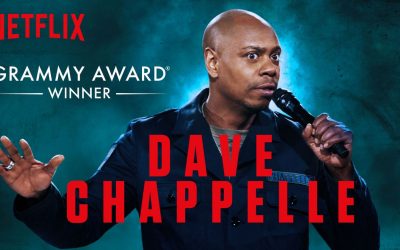When a major movie studio paid a young artist over $17 million for his movie about a slave who planned and led a bloody rebellion, actor, co-writer and director Nate Parker’s The Birth of a Nation became the talk of Hollywood. Epic, new dramatizations of American historical events are rare and Parker’s movie garnered serious attention, interest and praise.
That the film became controversial after Parker’s past became an issue—he had once been accused of rape and the accuser, it was later disclosed, committed suicide—overshadowed the rare, historical depiction of Nat Turner’s 1831 slave rebellion.
History teacher Alexander Marriott, an instructor at Alvin Community College and Wiley College in Texas, recently offered an examination of the facts and the movie in this exclusive new interview about Nat Turner.
Scott Holleran: Is Nat Turner’s rebellion fundamental to the history of American slavery?
Alexander Marriott: That’s been debated by historians. Yes, in the sense that resistance to slavery is a fundamental part of that story and to Nat Turner’s rebellion. In terms of how many people were killed [during the insurrection], according to Thomas Gray, the lawyer who took Turner’s confessions, the death toll among the whites was 55—12 men, 18 women, 25 children—I do not see wide variations in any of the accounts for this figure and the breakdown. As for the number of people killed in the aftermath of the rebellion, this is open to some historical conjecture. According to the most recent monograph on the rebellion by Patrick Breen, the number of blacks killed and/or executed after Nat Turner’s rebellion has been overstated by previous historians. Instead of ranging from 100-200 in the Southampton area, Breen pegs the number of blacks killed without trial in the 30s; [Breen asserts that] 17 were tried and sentenced to death, including [Nat] Turner. Even the most inflationary accounts do not suggest women and children among the enslaved were lynched and hung. Breen makes a compelling case that their status as valuable property impelled authorities to quickly reign in any vengeful impulses of panicked Virginians to protect their slaves from annihilation. Turner’s is also the most spectacular form of rebellion. It’s the only one that came off that does target women, children and babies and, because slaves in Haiti had rebelled in 1790 and word of that had traveled, its nondiscriminatory nature realized the nightmares of American southerners of what a slave rebellion would look like.
Scott Holleran: Has there been a cinematic depiction before Nate Parker’s The Birth of a Nation?
Alexander Marriott: There could possibly be a French film, but as far as English-language cinema goes, I’m not aware of any dramatic film adaptation, which is too bad. It’s an intensely complicated story. At the time it happened in the early part of the 19th century after the 1790 slave rebellion in Haiti, Nat Turner’s rebellion certainly gave pause to white Southerners who had been speaking openly about white Southern society and how slavery could be integrated in the American South. Could a large population of former slaves live among their former slaveowners? The answer after the Haitian rebellion seemed to be No. Nat Turner’s rebellion did trigger a debate among Virginians about abolition.

Depiction of Nat Turner’s 1831 slave rebellion
Scott Holleran: Did Nat Turner’s insurrection ultimately hurt or help the cause for abolition?
Alexander Marriott: If the cause is the immediate end of slavery then Turner’s rebellion probably did not do anything to that cause one way or the other. Turner’s rebellion fits into the failure of the American Revolution to eliminate slavery, which is part of the cause of the Civil War. Slavery was a contradiction to America’s founding. If you take [abolitionist] William Lloyd Garrison when news arrived about Southampton County in Boston, he pointed out that what Nat Turner had done was the inevitable consequence of slavery. It’s dark but illustrative. Among black abolitionists, Turner was not viewed as a villain. I’ve never come across any long remarks that Frederick Douglass produced on Nat Turner. Douglass certainly would not have morally condemned Turner.
Scott Holleran: Was Nat Turner a religious zealot, as the movie portrays?
Alexander Marriott: Everything we have to go on suggests that the answer is Yes, though no more so than other preachers in 1831. There were a lot of [Christian] revivals by both races for evangelism.
Scott Holleran: Is the scene in which slave preacher Nat Turner delivers baptism to a white man accurate?
Alexander Marriott: That did indeed occur and it was a controversial thing—even the most debased white person would not have [typically] come to a slave for baptism but Turner had built up a real reputation. Most whites would have been amused that a scoundrel [as depicted in the film] was being baptized by a slave preacher. The baptism contributed to the sense among Southampton County whites that Turner was not a particular threat. The sense was that he was specially marked. This was known by whites as well as slaves.
Scott Holleran: Is there evidence that rape as depicted in The Birth of a Nation occurred?
Alexander Marriott: Did rape occur under slavery? Yes. Was Nat Turner’s wife, Cherry, raped? No, according to historical records but if she had been there would have been no reason to note it and every reason to avoid noting it—with the exception of Nat Turner himself, who was literate—but Turner’s bible was not burned and he did write things down in the bible. As the rapes are portrayed in the movie, there’s nothing historically wrong with either of those portrayals. The notion that [rape] wasn’t happening all the time is not supported. Rape was not talked about—it was beautifully but horrifically portrayed in 12 Years a Slave that [slave] Patsy was being raped [by the slavemaster] and everyone knew it but didn’t talk about it. Thomas Jefferson’s mistress Sally Hemings is herself the product of Jefferson’s father-in-law. One of the other ways we know it happened is the color dynamics—darker field hands and lighter skinned house slaves—the evidence is everywhere around us.
Scott Holleran: How did his father’s escape from slavery impact Nat Turner and what happened to his father?
Alexander Marriott: We don’t know—we do know that Turner’s father ran away and was successful—and it’s hard to have records. The same is true with 12 Years a Slave author Solomon Northrup.
Scott Holleran: Is Parker’s portrayal of Nat Turner accurate?
Alexander Marriott: I don’t object to it in any formal way—there’s enough ambiguity and gap in the historical record that he can be a lot of things, which is why Nate Parker could make Nat Turner whatever he wanted. My own read on Turner is that Parker could have and should have focused a lot more on black preaching and how African Americans interacted with Christianity and [put more emphasis on the] gathering [of slaves in religious congregation] in the barn. Most of Turner’s [preaching] competition was not well read and Turner cut his teeth by listening to other black exhorters. Religion was not an attempt to repent in church on Sunday. So the black church would have been emotive and demonstrative and you don’t have any of that [in The Birth of a Nation] and [showing the demonstrativeness] would have made a lot more sense. Among themselves, certainly church was a very musical ceremony, which is an important part of blacks’ religious experience.
Scott Holleran: Did Turner’s rebellion target white women, children and babies?
Alexander Marriott: Yes. What makes the Turner rebellion so terrible and catastrophic is that it’s absolutely everything Southerners had always feared—it’s the worst-case scenario—an attack in which women and children were murdered. There’s no question that [Gabriel] Prosser’s [earlier slave rebellion] was a military style rebellion, so there were no attempts to terrorize and there’s no question that Turner was going to go on the Old Testament-style wrath as God’s sword, meaning killing babies and women and children. They killed the [slaveowning] Travis family in their beds and went back to kill the baby. In the movie, the only children seen killed on screen are blacks. But we know that a little [white] boy had his head chopped off while running away from a slave. In the movie, we see Turner himself kill [slavemaster] Sam Turner but [in fact] the only person I’m aware that Turner killed is a small [white] girl who was running away. He bludgeoned the child to death with a fence post.
Scott Holleran: Was Turner rational?
Alexander Marriott: Yes, to the extent that he knew his position in the world and that anyone who turns to evangelism can remain rational. The first date he originally planned for the rebellion was the Fourth of July—Turner became sick with anxiety and couldn’t do it—and that date could not have been randomly selected. His reputation was that he had always been planning things. He was coming up with plans to steal foods—he was the one to go to for plans and he’d established himself as a leader, not as a doer. And, apparently, the rebel slaves did not have a problem with Turner not doing the killing.
Scott Holleran: Was Nat Turner’s attention to detail captured in the movie?
Alexander Marriott: No. In the film, suddenly, there was a meeting in the woods—without Nat Turner vetting anyone who participated in the rebellion. You couldn’t regard The Birth of a Nation as a biopic because it leaves the history behind.
Scott Holleran: Is Nat Turner’s grandmother accurately depicted?
Alexander Marriott: She did exist and she was a direct captive from Africa. But we know so little about these slaves that writers can just create types. During the siege, Turner did skip [attacking] the plantation where [his wife] Cherry lived. Turner literally claimed that the ability to read and write came to him [from God]. After his unusual ability was discovered, he was given formal education though it was not as formal as portrayed in the movie. We know that he could read so he could have read whatever he got his hands on.
Scott Holleran: How do you regard Nat Turner’s confessions?
Alexander Marriott: One of the interesting questions anyone who studies Nat Turner has to grapple with is [historical documents]. In Nat Turner’s case, we get a long confession that gives insight into his thoughts. Thomas Gray was the lawyer [who interviewed Turner and elicited the confession] and he certainly did have an agenda—he could make money from the document or, as a white Southerner, he may have been tempted to downplay that, when asked if [slavemaster] Travis a good master, Nat Turner said Yes. So, if Travis was not a bad master, why [did Nat Turner] not spare him and his family? Not everyone who was killed was bad. So, when you read the confession document, you have to read it carefully. I tend to think [Gray] seems interested in trying to figure out what made Nat Turner tick. The Nat Turner that emerges from the confession document does come off as a possibly delusional, religious madman—does this mean that slavery is not that bad?—and Southerners could get some level of calm out of that. Some skeptical scholars might wonder why Turner doesn’t talk about all the horrors of slavery he’s seen. But the confession document is regarded as potentially useful document when it’s subjected to corroboration, not as a fraud. It’s also regarded as Turner’s confession filtered through a white man in Virginia in 1831. And, of course, Frederick Douglass did talk about these horrors of slavery. Turner would have seen really, really awful things done to him and to others, too. If you read 12 Years a Slave, Solomon Northrup does not beat around the bush about [what happened to] Patsy. But he did it in a way it could be published.
Scott Holleran: Is the theme of The Birth of a Nation and/or Nat Turner’s rebellion that the ends justify the means?
Alexander Marriott: My impression is that Nate Parker thinks that resistance requires direct action, not sitting back and accepting what’s happening. From Nat Turner’s standpoint of the rebellion itself, he must have believed that this was an Old Testament-style [calling] and that he was delivering the wrath that God called for and that the system and deliverance from it required total annihilation, which is why he could [order a baby being killed] and why Turner never expressed remorse for it. Even Gray does not portray Nat Turner as meek or repentant.
Scott Holleran: Is it true that Nat Turner was hung, skinned and beheaded?
Alexander Marriott: Yes. Southerners made sure that no one would be coming to Nat Turner’s grave.
Scott Holleran: Rebel slaves are depicted killing with beheadings, too. Was this common practice?
Alexander Marriott: Remember the French Revolution. Beheading is a visceral way of warning [enemies] that this could happen. In England, it became the method for executing aristocrats. Going to public executions was common.
Scott Holleran: How should one regard slavery?
Alexander Marriott: Slavery is too easy to think of as endless fields of cotton for the South or as unending misery, toil and human squalor for the slaves. In some ways, it was worse and in some ways it was better and it wasn’t just the South—slavery was originally legal everywhere—it explains why the country has the heterogeneous racial quality it does, which is a strength, not a weakness. The United States had to overcome this problem and there’s a point at which Americans did start to get along reasonably well. We’re not all killing each other in the streets. Almost everyone gets that slavery is wrong. If you read Frederick Douglass, he wrote about his enslavement that the worst moments were when he was treated the best.
Scott Holleran: Is Frederick Douglass a good starting point for someone who takes slavery seriously while putting slavery in a proper American historical context?
Alexander Marriott: Yes. You couldn’t do any better. The one caveat to that is that Douglass is fairly unusual—he was not a Deep South slave, so he did not have the worst experiences as a slave. Incidents in the Life of Slave Girl by Harriet Jacobs is a good way to get a different perspective from a slave in New Orleans. She writes about her life as an urban slave woman. For a perspective from a Deep South field slave read Solomon Northrup’s account of enslavement on sugar and cotton plantations in Louisiana in 12 Years a Slave. One of the great things about the abolition movement is that abolitionists went out and found people who could write. They left us with a body of literature.
Scott Holleran: What does The Birth of a Nation get wrong?
Alexander Marriott: The [depiction of the] rebellion itself is all wrong, which is sad because the silliest thing was the confrontation in Jerusalem [Virginia] when they end up having the big showdown—nothing like that ever occurred. The U.S. Army did not show up. The movie doesn’t show Turner’s time as a fugitive. It portrays that he gave himself up and that’s completely wrong. He did not surrender. It was happenstance that when he was found he was emaciated. It had been eight weeks. Also, Nat Turner was not beaten up by the townspeople as portrayed.
Scott Holleran: What does The Birth of a Nation get right?
Alexander Marriott: The first bit about Nat Turner [as a boy] with his grandmother and mother and their concern with his African heritage and what the bumps [on Turner’s] body mean—that they [thought the body bumps] meant he was going to be a leader—that was true. The plantation’s houseguest getting a slave to [have sex] with—that’s pretty accurate. And, if anyone comes away from this movie thinking that slavery was unpleasant and harsher than they thought, that’s good.



